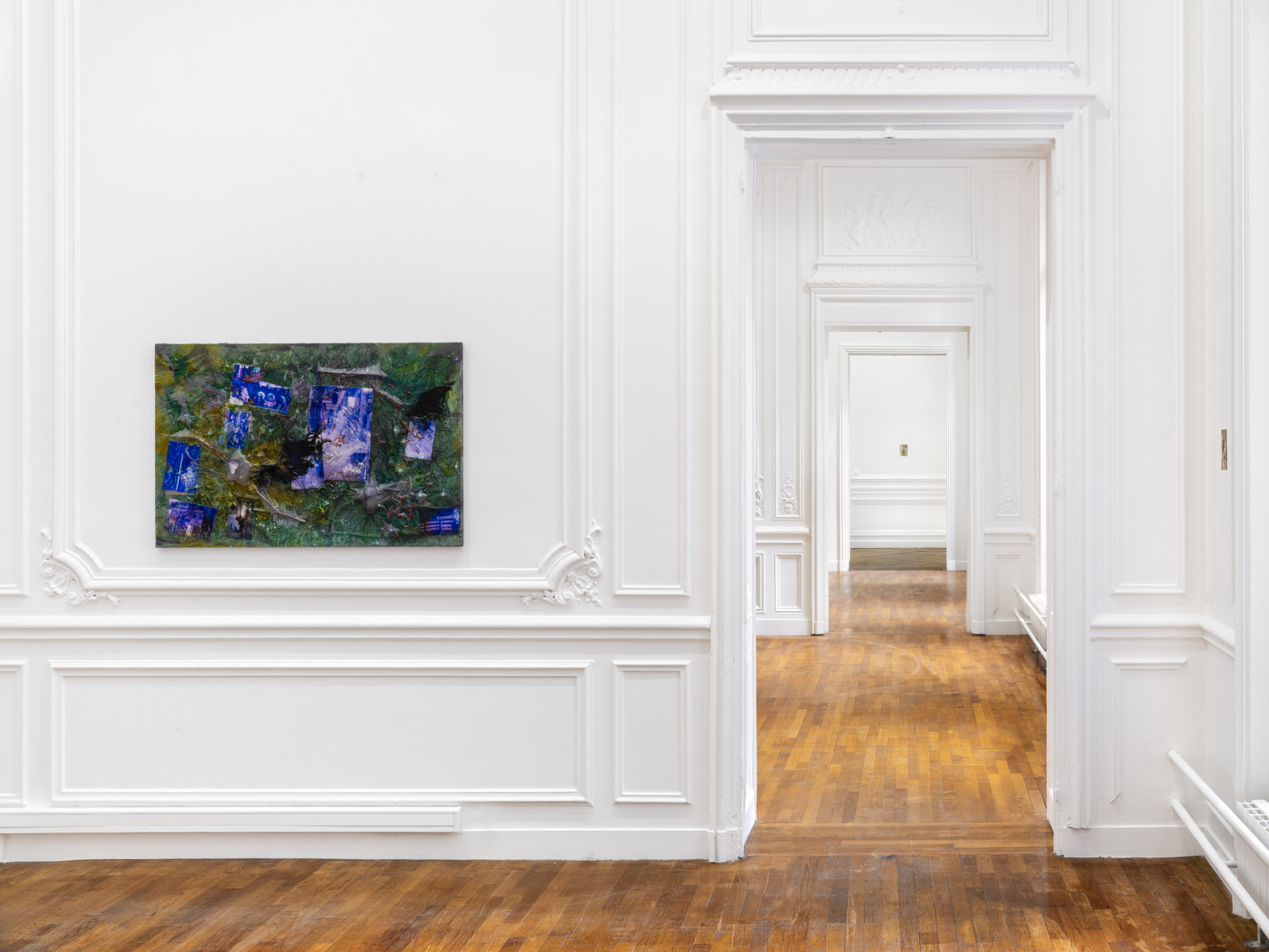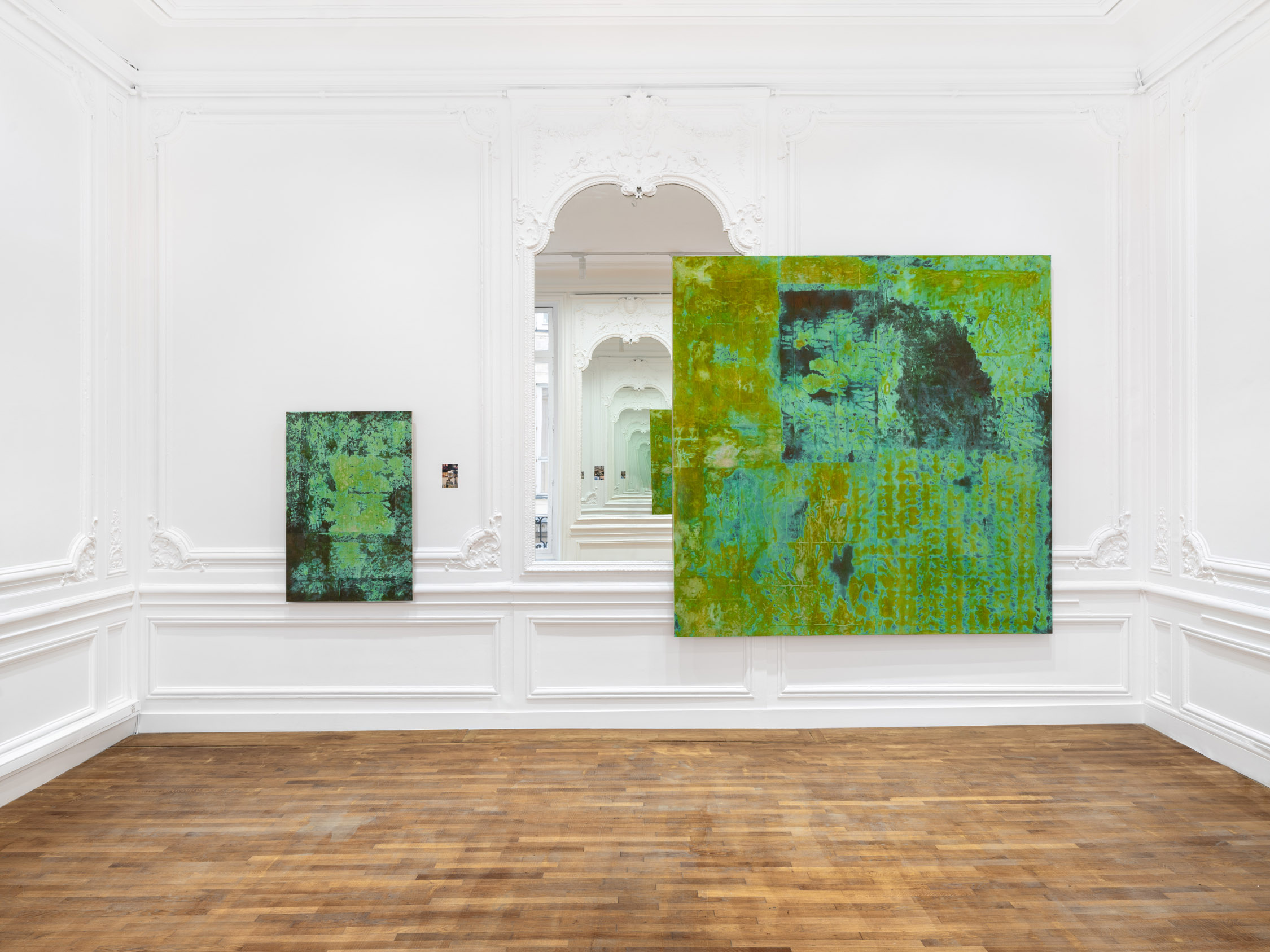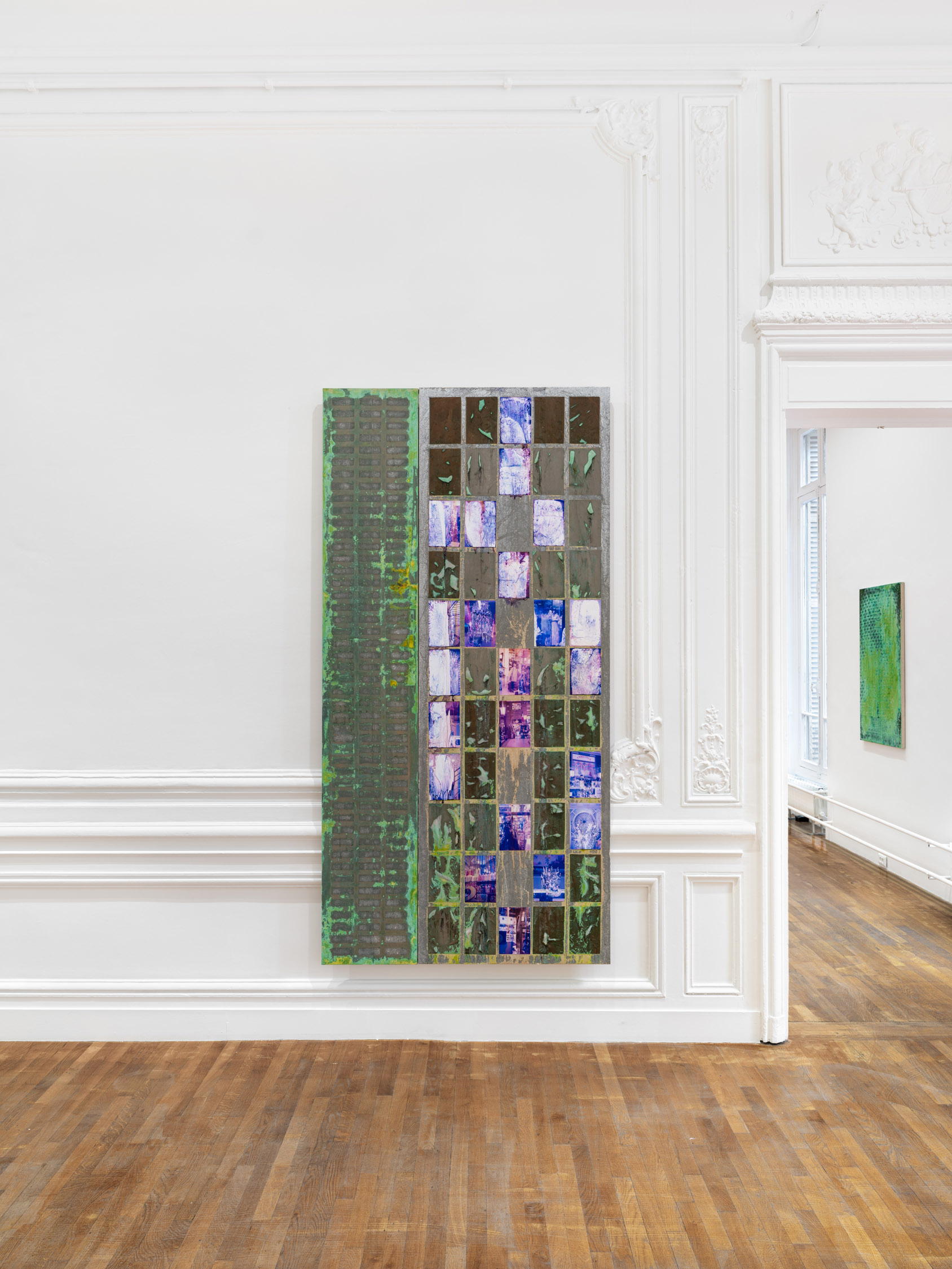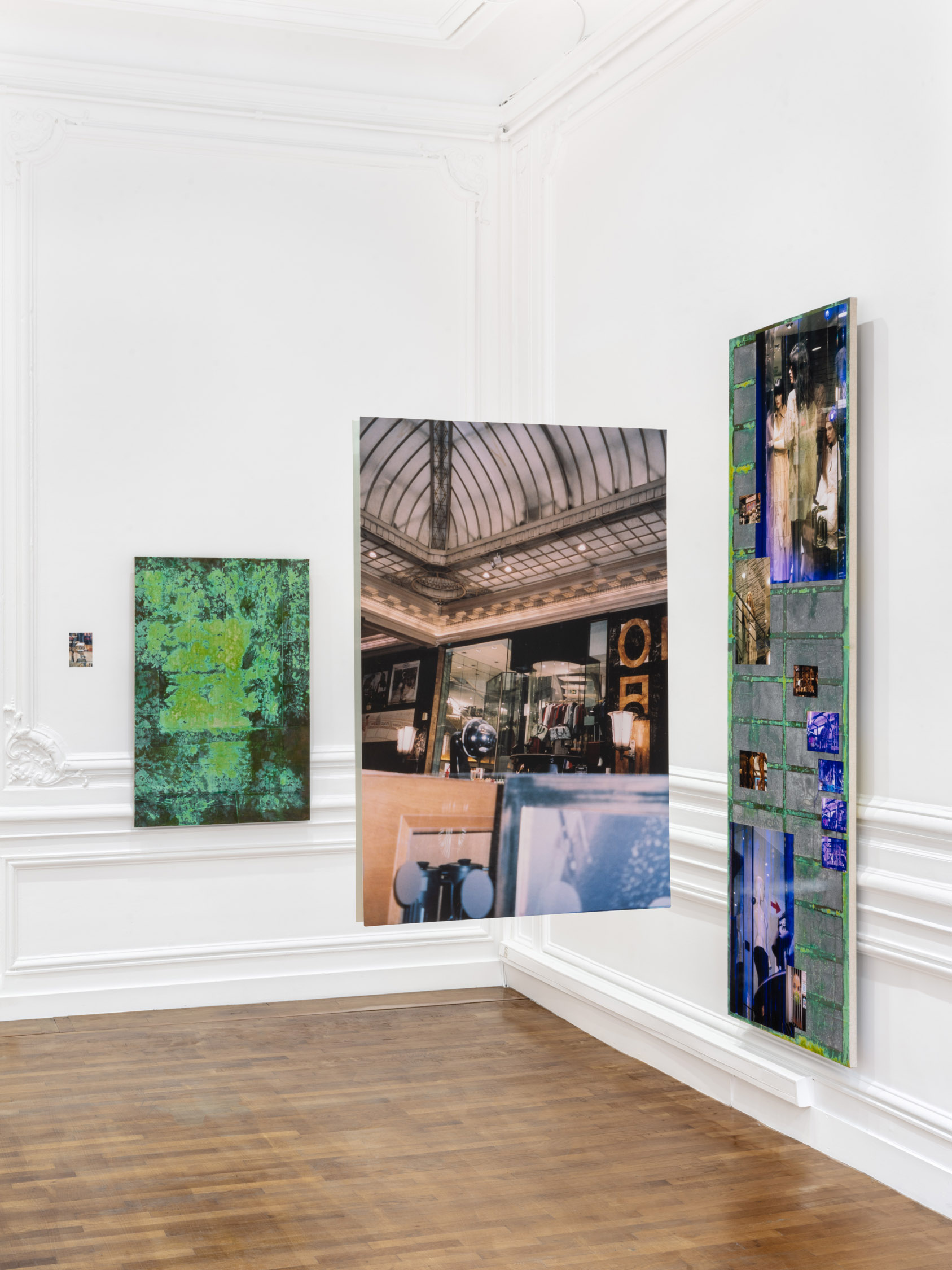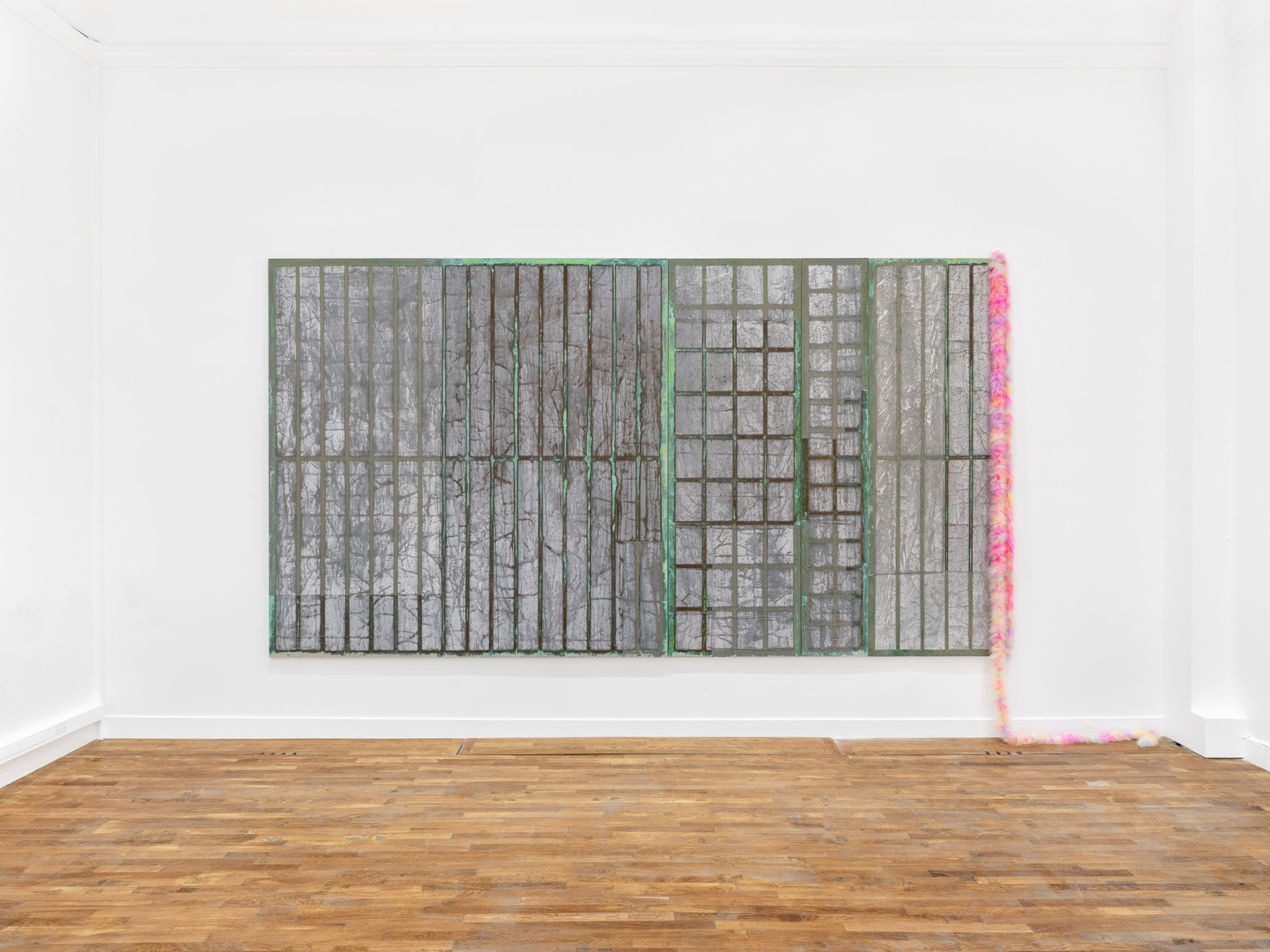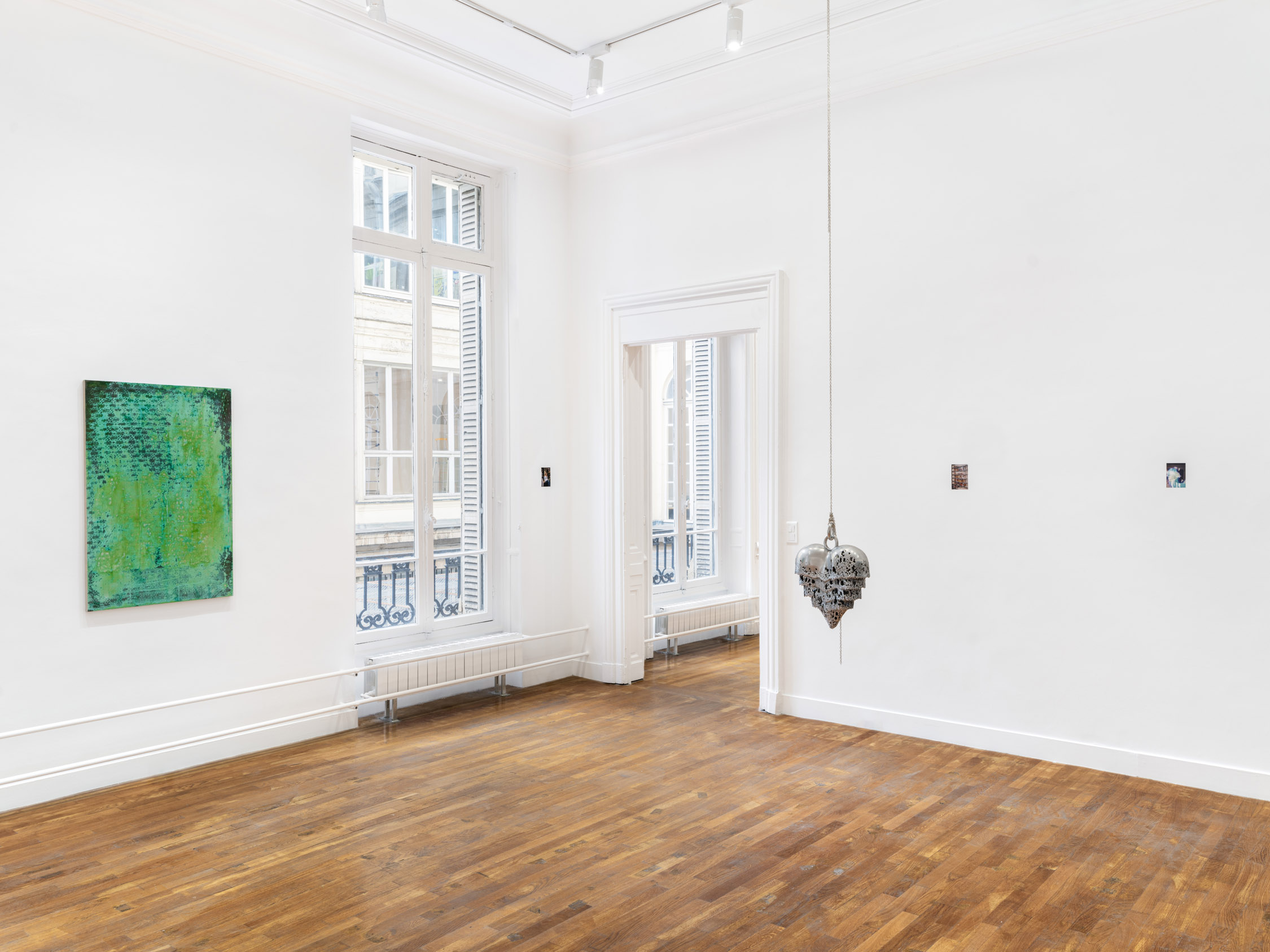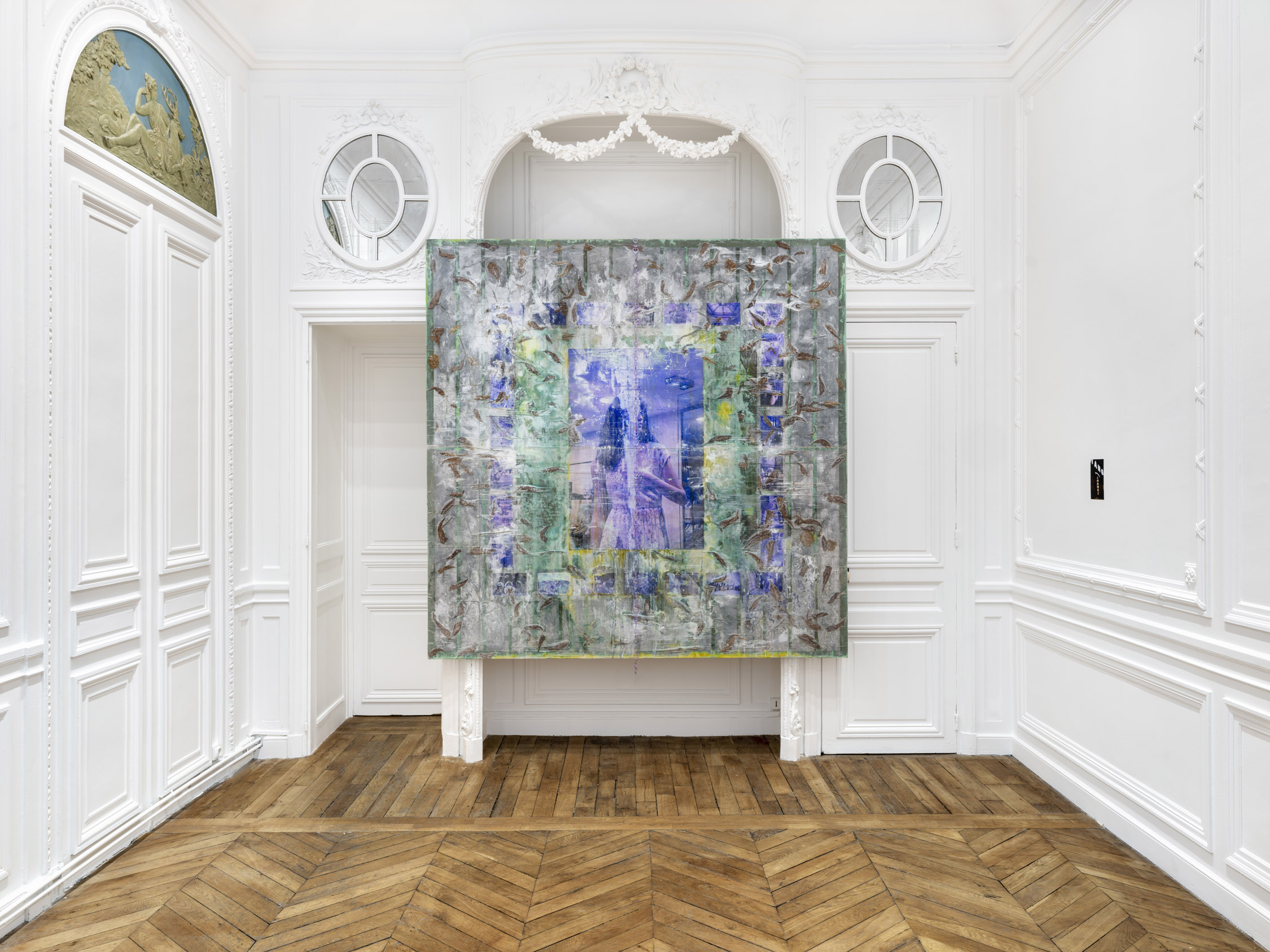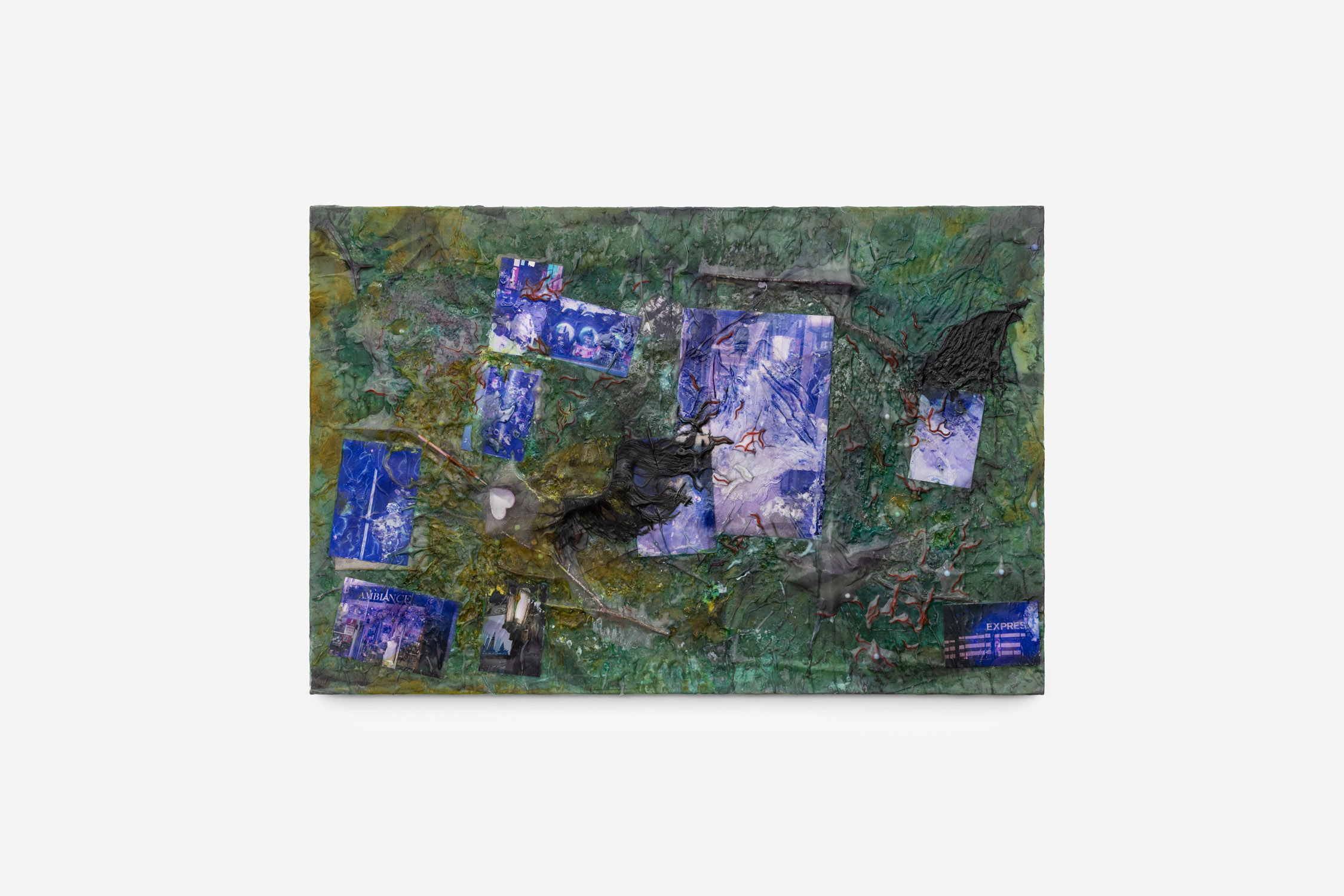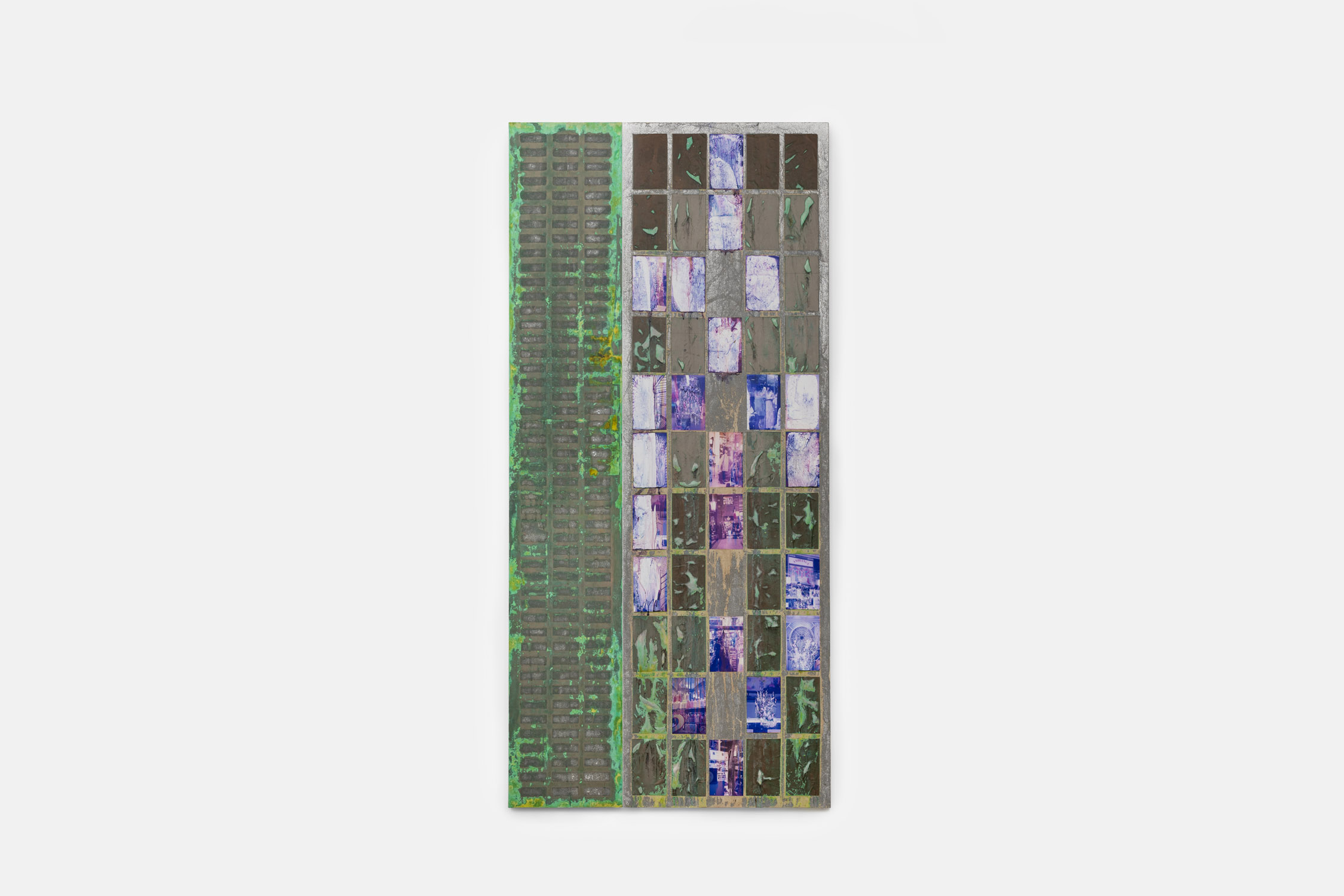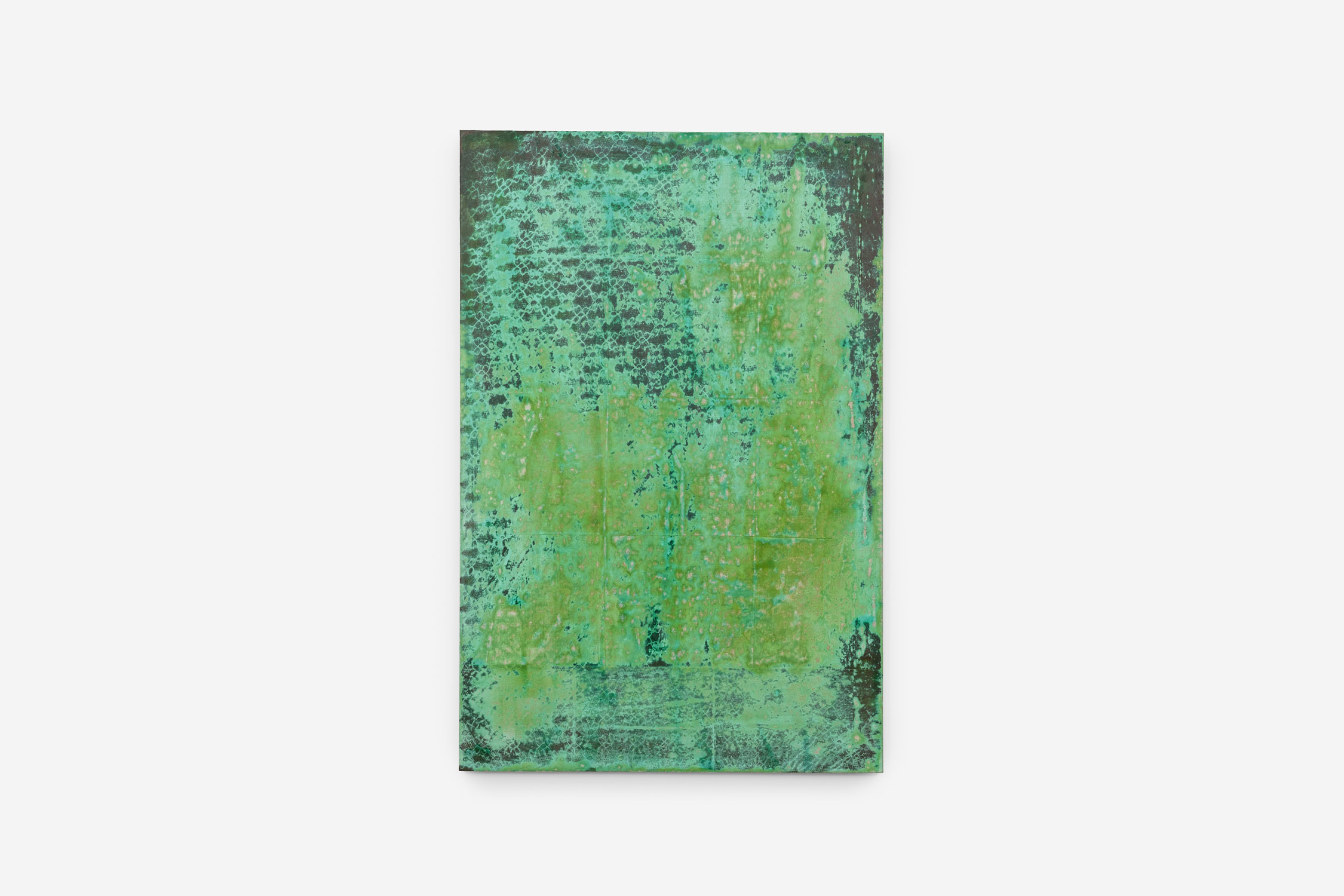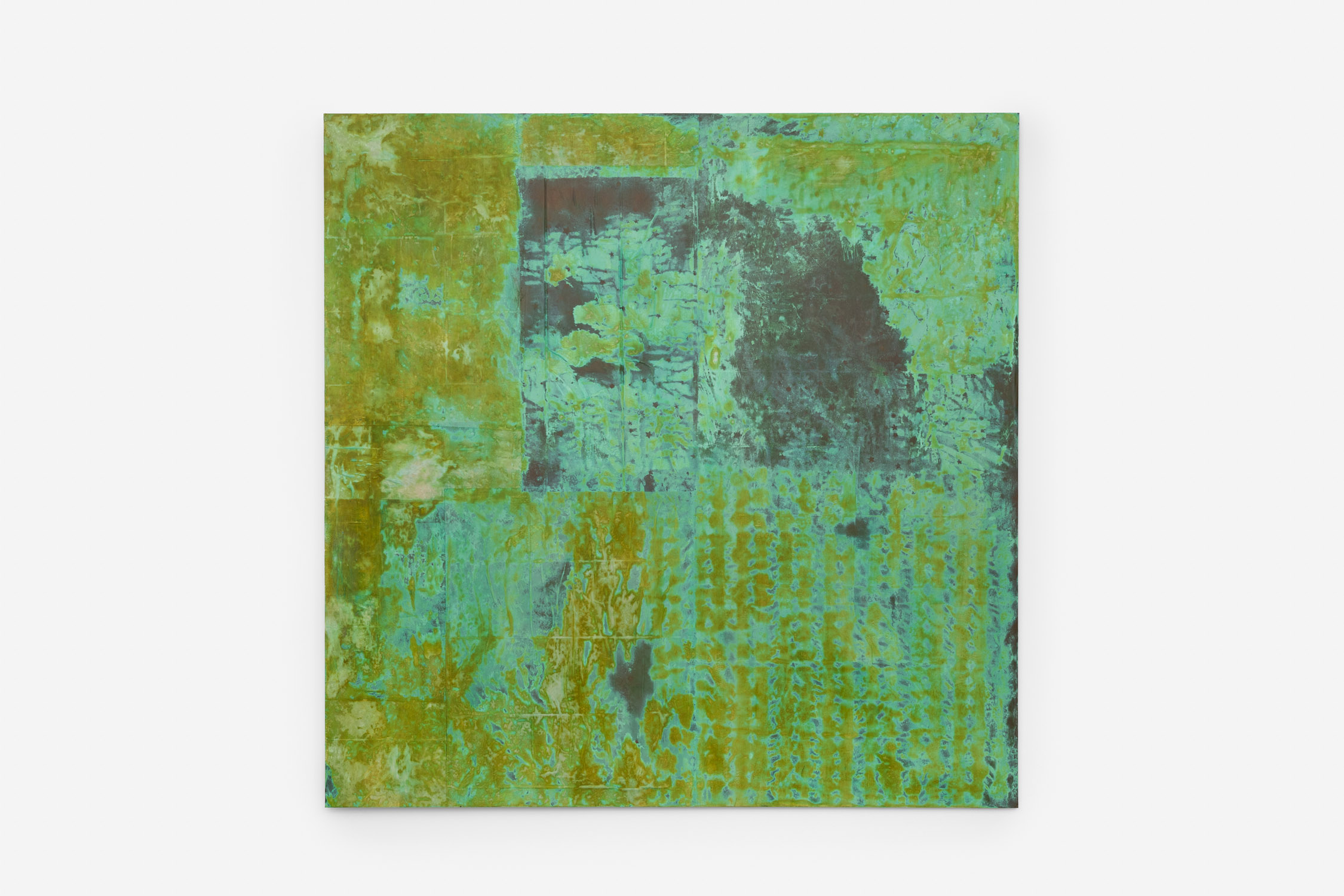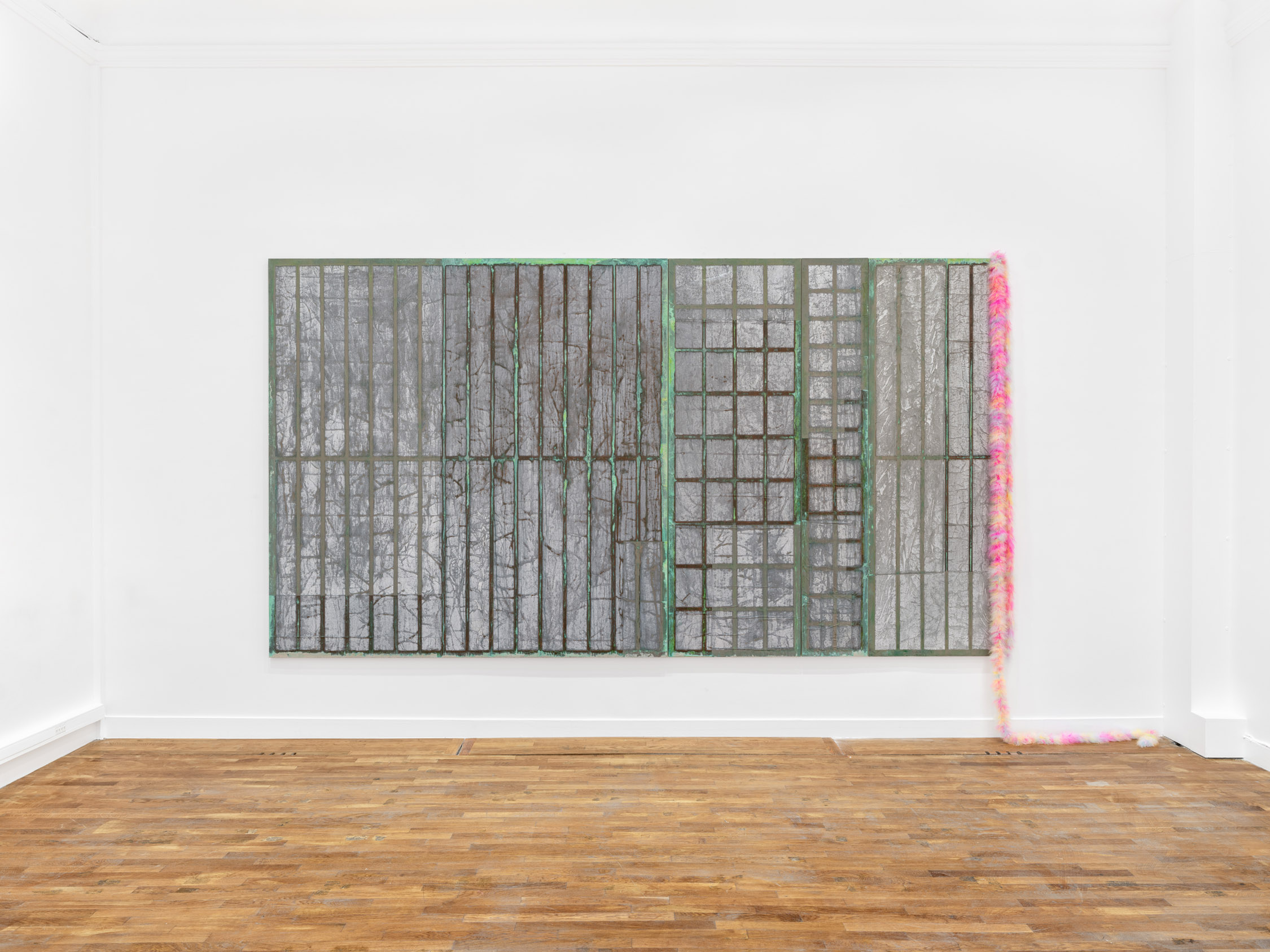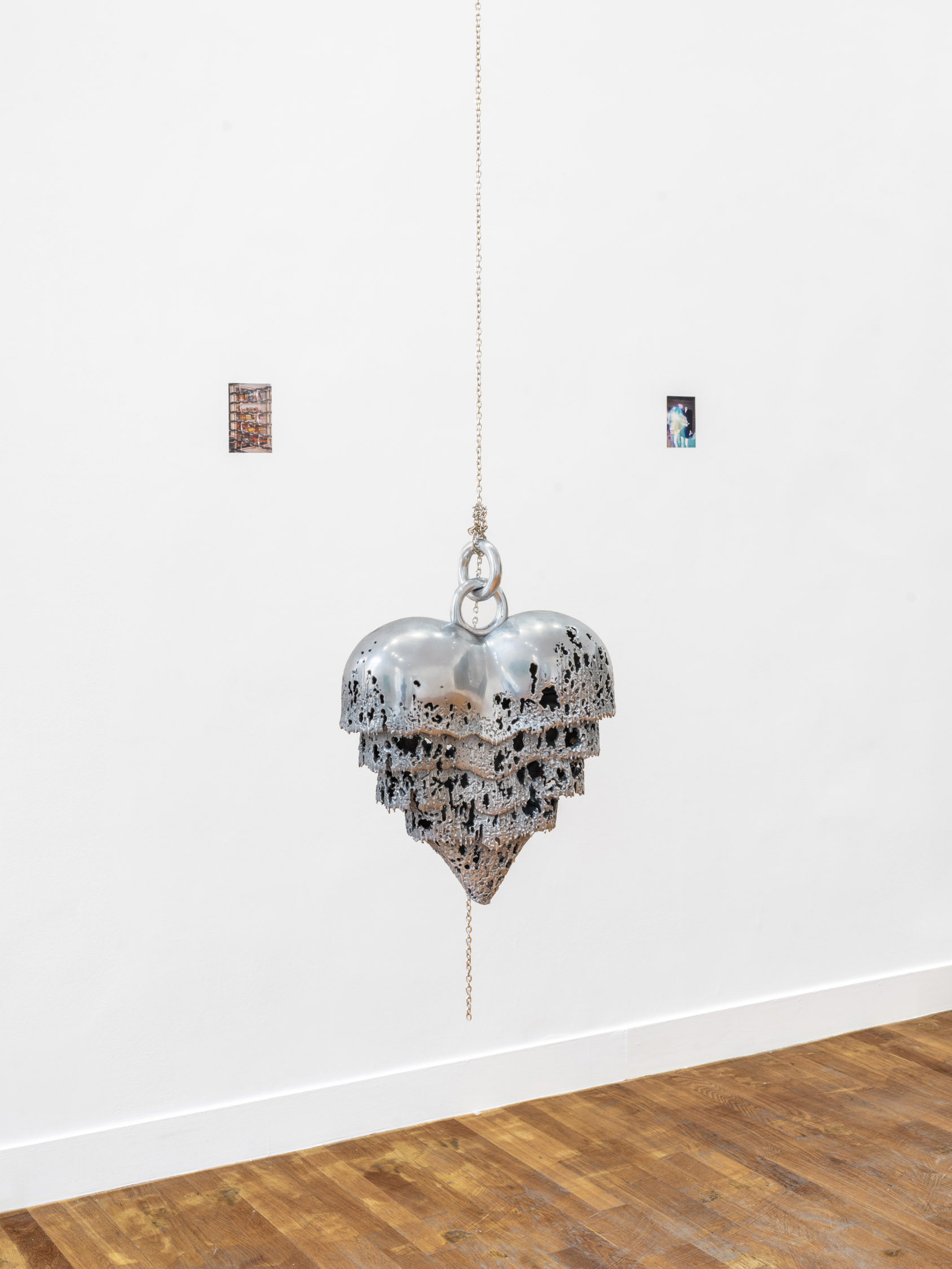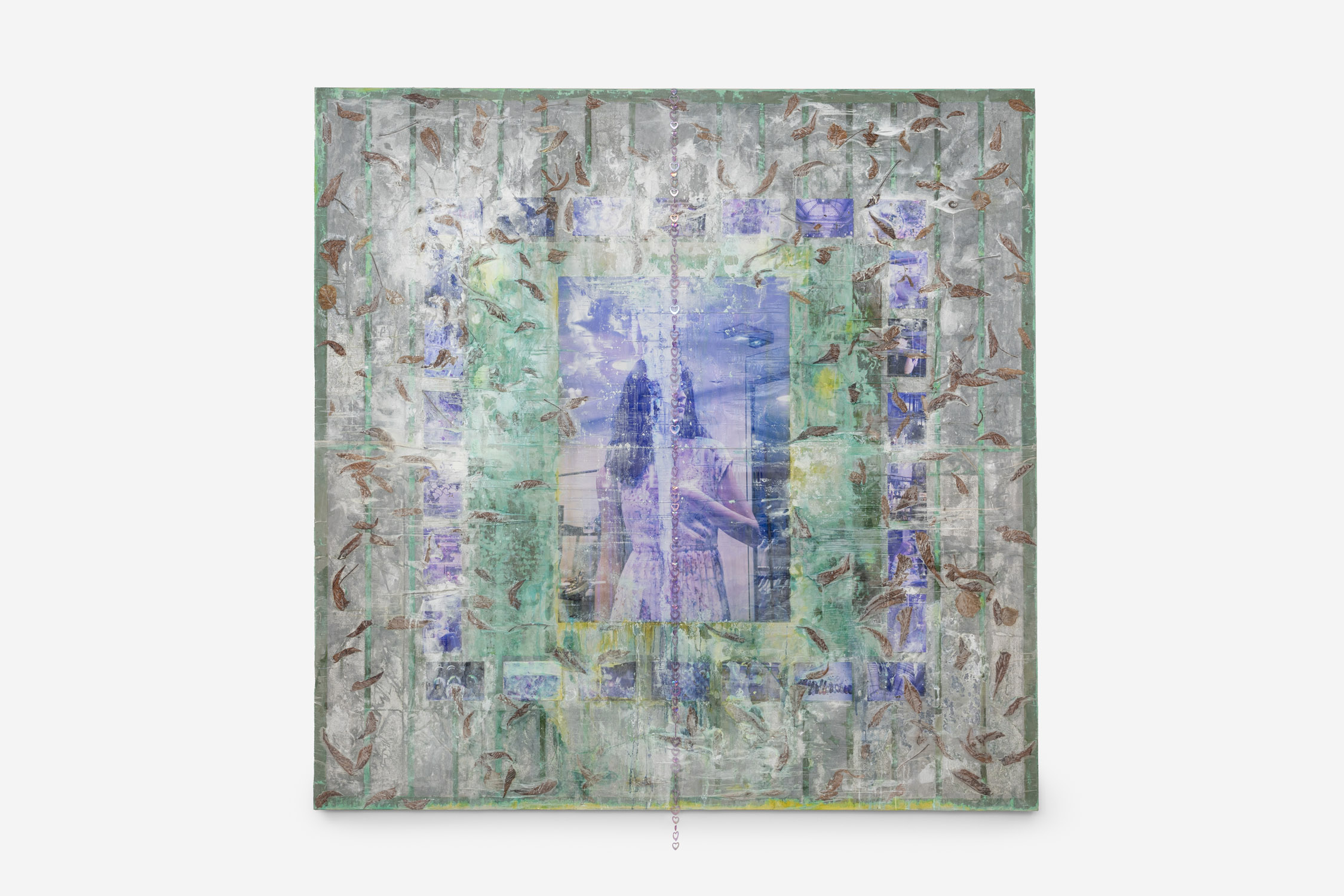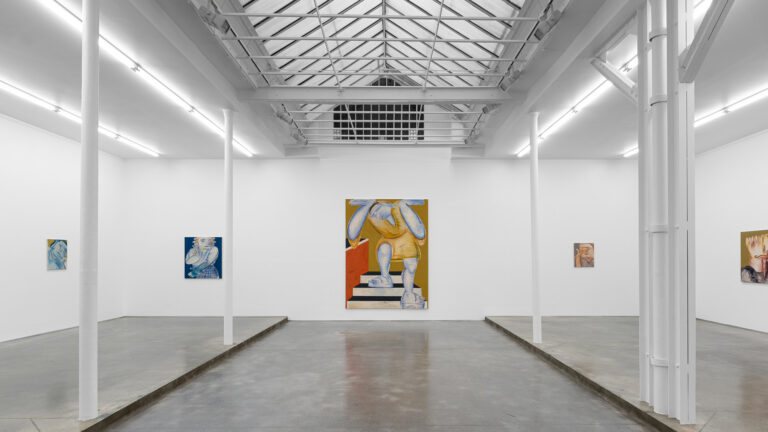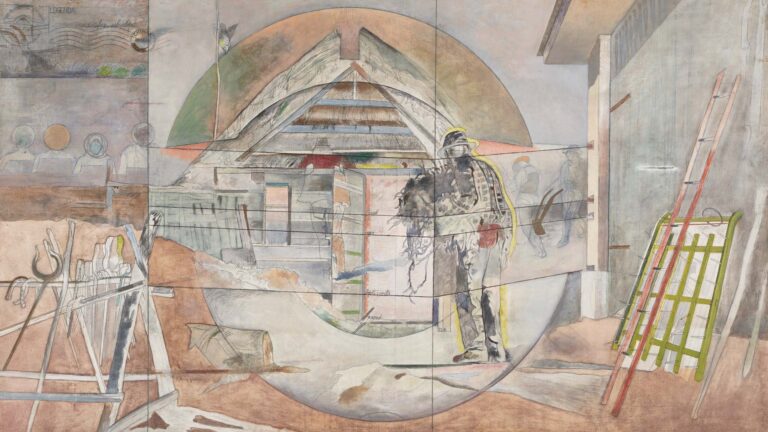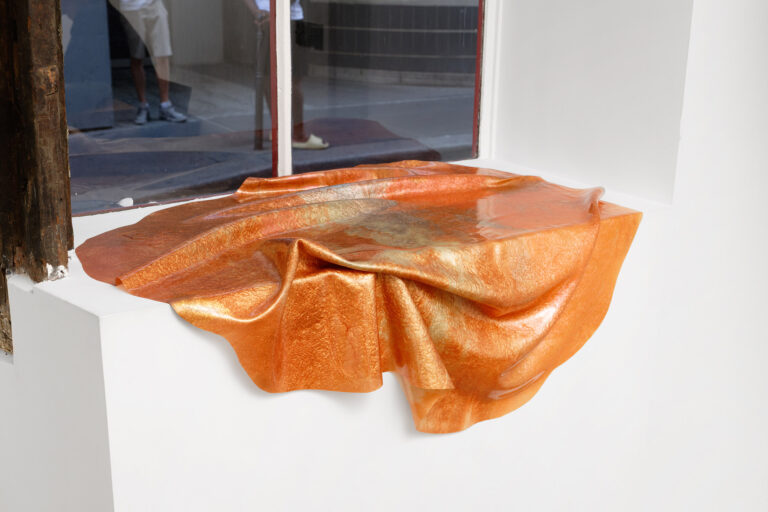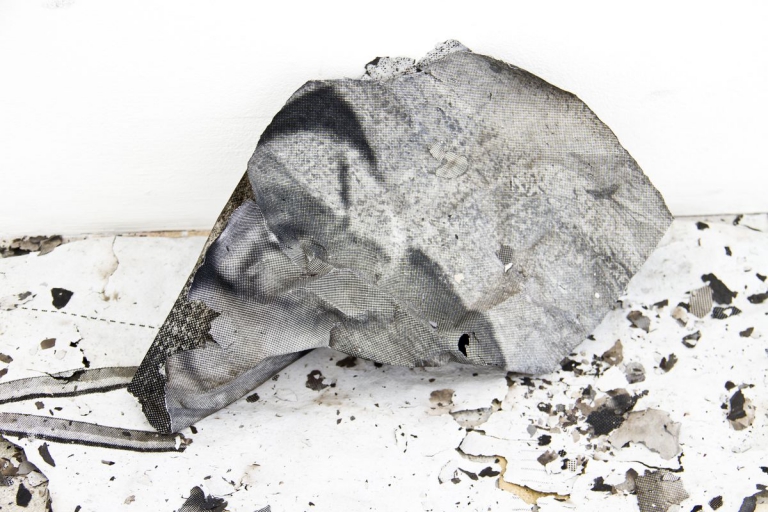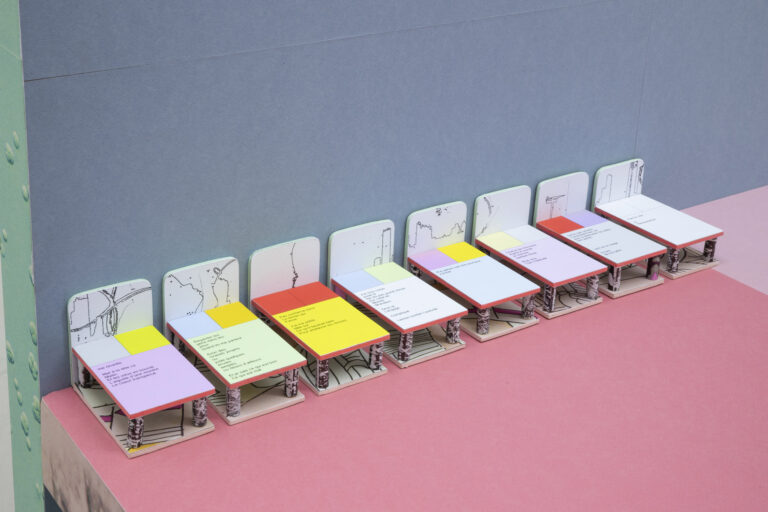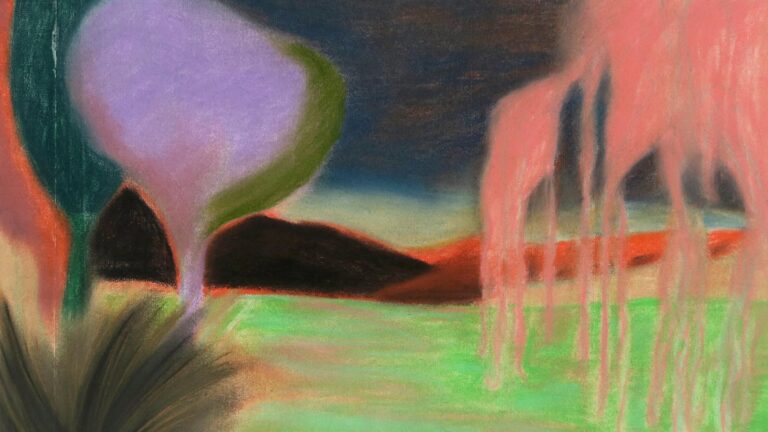“Attached as we are to the senses, we manifest the sheer porousness of boutiques. The boutiques are categories. We have plenty of time. The problem is not how to stop, but how to articulate the politics of their passage. Every culture is the terrible gush of its splendid outward forms.”
—Lisa Robertson, Spatial Synthetics: A Theory
For Lies, her second exhibition at the gallery, Mimosa Echard presents two entangled bodies of work: a continuation of her oxidised metallic tableaux and a new series of photographs taken in a 1920s Parisian arcade.
Conceived as a modular system, the tableaux are made from electromagnetic shielding fabric, a conductive material used to create radiation-free enclosures. These impenetrable surfaces are overlaid with grids of domestic aluminium foil—a material also associated with electro- sensitive protection and paranoia—which are then exposed to various corrosive liquids, deteriorating into bleeding surfaces of green and silver. Superimposed onto the ornate Haussmann-style architecture of the gallery space, their oversized and purposefully awkward dimensions synthesize object with architecture, evoking doors, windows, or motherboards, as well as meteorological and infra-red imagery.
In Lies, these tableaux become the background to a photographic parade of mannequins, knick-knacks, and other forms of dead stock that accumulate in Les Arcades des Champs Élysées. Once a bath house and famous cabaret, the passage now stands as an anachronistic ‘non-place’, liquified by the globalised flows of bodies and commodities, a tourist trap where various incongruous items are consumed. Over many months, Echard shot these items in their ‘natural environment’, casting them in an inanimate psycho-drama where humans have been replaced by their supposed objects of desire and identification.
A collage of two forms and two spaces, enmeshed through acid rain and accessorised with lace veils, boas and charms, Lies continues Echard’s conceptual and material exploration of photography as an inherently vulnerable medium, as both penetrated surface and theatre of artificial projection. Through juxtaposing the ‘pleasure architectures’ of the last two centuries—the fantasy of a radiation-free ‘safe space’ and the origins of urban consumerist experience—Echard meditates on the erotics of contemporary flesh, its inescapable desire to become image.
Born in 1986 in Alès, France. Lives and works in Paris, France. Mimosa Echard draws on biological research, histories of experimental cinema and her own life to create works that play with the relationship between sexuality, synthesis, and perception.
Working across various media—from sculpture to installation to video games—her work is driven by ongoing and contradictory processes of absorption, accumulation and circulation, observed in phenomena as diverse as popular culture, metabolic systems or electromagnetic spectra.
Attentive to the invisible or latent potential of the materials she uses, her assemblages and installations displace the capacity of language to know its object, allowing new and ‘unnatural’ associations to proliferate.
Mimosa Echard is awarded of the Marcel Duchamp Prize 2022.
She has exhibited her work in various internationally renowned institutions such as the Centre Pompidou, Paris (2024; 2022); Lafayette Anticipations, Paris (2024); Palais de Tokyo, Paris (2022; 2017; 2013); Collection Lambert, Avignon (2021; 2020); Musée d’Art Moderne de la ville de Paris, Paris (2020); Australian Center for Contemporary Art, Melbourne (2020); Centre d’Art Contemporain d’Ivry — Le CRÉDAC, Ivry (2020); Dortmunder Kunstverein, Dortmund (2019); Platform-L Contemporary Art Center, Seoul (2018); Cell Project Space Gallery, London (2017).
Mimosa Echard’s works have joined the collections of the Centre Pompidou, Paris; Long Museum, Shanghai; Hessel Museum of Art Bard College, Annandale- On-Hudson; Macalline Center of Art, Beijing; MAC VAL, Vitry-sur-Seine; CNAP — Centre national des arts plastiques, Paris; Musée d’Art Moderne de Paris, Paris; Fondation Louis Vuitton, Paris; Fondation d’entreprise Galeries Lafayette, Paris; Sadami Art Foundation, Dhaka; Ettore Fico Foundation, Torino; IAC — Villeurbanne/Rhône-Alpes, Villeurbanne; FRAC Corse, Corte; FRAC Bourgogne, Dijon; FRAC Ile-de-France, Paris, among others.
